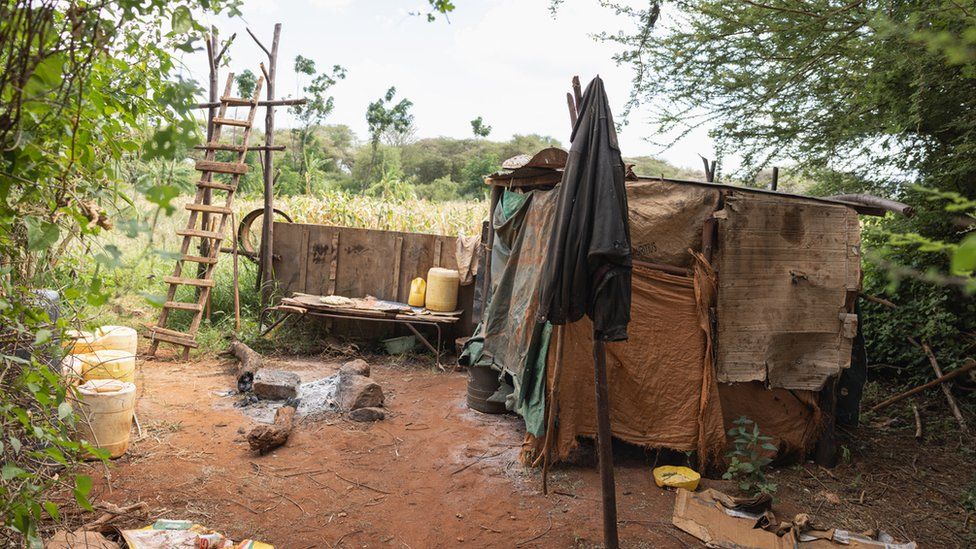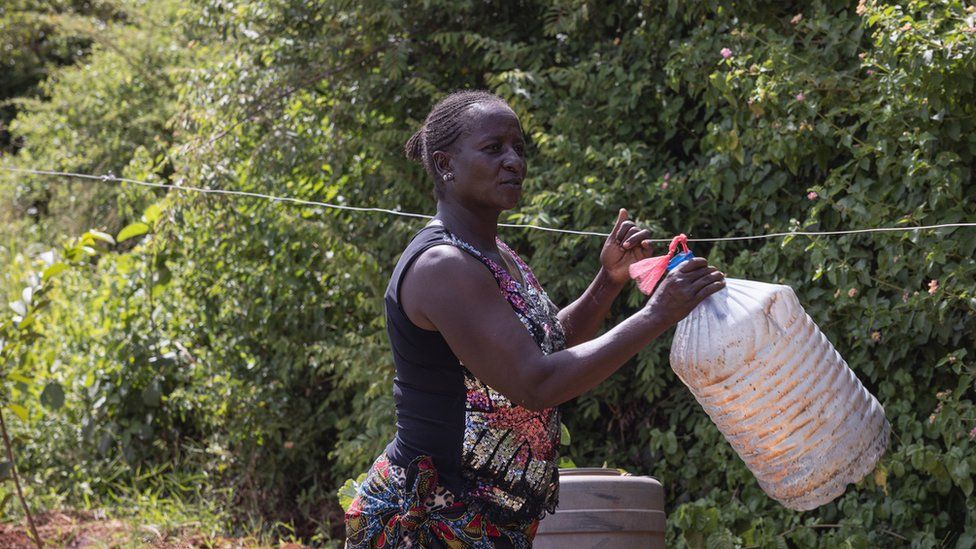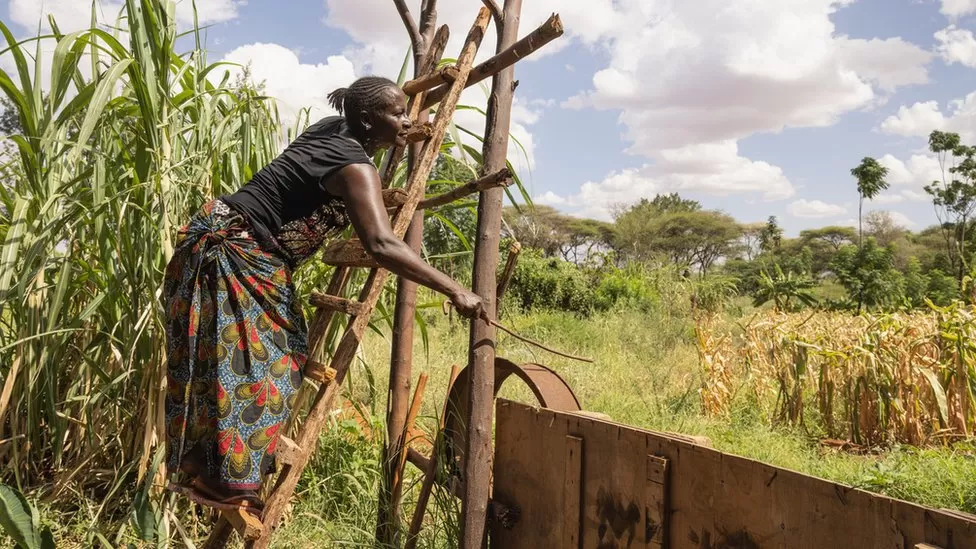In our series of letters from African journalists, Ismail Einashe reflects on how Kenya’s changing climate is bringing animals and humans into greater conflict.

On a sweltering afternoon in the small Kenyan village of Njoro Mata, a farmer is desperately inspecting the damage caused to her smallholding by elephants.
Kenya’s famous giants have been invading Monicah Muthike Moki’s land in southern Kenya, overlooked by Mount Kilimanjaro.
The 48-year-old is a single mother of three whose livelihood depends on her hard work growing cassava, maize, bananas, sugarcane and mangos.
Her harvest had been increasing after employing new farming methods introduced with the help of the Kenya Red Cross Society, but in recent months, her precious crops have regularly been destroyed by elephants.
Ms Moki says elephants come every day from the nearby Tsavo national park, one of the world’s largest game sanctuaries, home to about 15,000 of the mammals.
According to her, herders have cut the fence to access pastures for their livestock in the park but elephants then cross the other way.
With consecutive years of failed rains, the pastoralists are desperate to feed their animals, while at the same time the elephants have started to roam further afield seeking sustenance.
The animals’ new behaviour patterns are driven by Kenya’s escalating climate crisis and drought, causing wildlife to conflict with people.
For Ms Moki, the elephant crop-raiding is “very painful” to see.
She says the elephants are “bold” and “not afraid”. They can come at any time but usually from around dusk, and they raid in herds, as pairs or sometimes lone elephants with their calves.
The elephants have recently eaten her entire maize, banana and cassava crops.

Currently, she should be harvesting five to six 90kg bags of maize she would sell in the local market in the nearby town of Taveta for 6,500 Kenyan shillings ($48; £38).
Without her crops, Ms Moki cannot feed her family or sell her produce to pay the school fees for her 10-year-old daughter.
Farmers in her village also use the bags of maize they harvest as a security deposit or payment of school fees for their children to attend the local primary school. In turn, the schools use maize to serve children meals.
Now children as young as four years old are forced to walk up to 4km (2.5 miles) home from school for lunch before walking the same distance in the opposite direction in the afternoon.
The largest land animals in the world can consume 150kg of food per day, spending three-quarters of their day just eating. Ms Moki explains that they often leave nothing behind.
Elephants also gulp down 100 litres of water a day, so often drink the little water she gets supplied by the local authorities to use on the farm.
Homemade alarm system
It is a vicious cycle that she says is only getting worse.
Ms Moki tries to deter the elephants with bright lights and loud noises and has developed several improvised techniques to prevent them from raiding her crops.
She uses old water and oil bottles around the edge of the farm connected with a wire so if the elephants hit the wires, they rattle and she can get up and respond.
“I climb a ladder, flash my light towards them, and make noise as you cannot approach the elephants,” the farmer says.

Every night she sleeps away from her family alone on the farm, nervously anticipating the rustling of jerrycans or the barking of dogs.
Sadly, her inventive measures do not deter the elephants, but they at least alert her to their presence.
Elephants can be extremely dangerous.
“If an elephant hurts, injures or kills me, my family will suffer,” Ms Moki says.
‘I outran the elephant’
Her neighbour Jonathan Mulinge, a farmer and father to four young children, says he had a recent near-death experience with an elephant.
He tried to deter one from destroying his crops, but it turned around and charged him.
“The only thing that saved my life was that I was able to outrun the elephant and run into my house,” he says.
Mr Mulinge says this is “a conflict between us, the humans and the elephant”, in which farmers like him pay the heaviest price.
“You plant your crops so that you can benefit from it, and then the elephants come and destroy it, and the farmers are back to zero.”
The community feel powerless and blames the Kenya Wildlife Service (KWS) for not doing enough to help them. The KWS did not respond to a BBC request for comment.
Ms Moki says the situation is getting more intolerable, and their concerns have not been addressed.
Joram Oranga of the Kenya Red Cross Society says the arid conditions, lack of rainfall and extreme weather patterns caused by climate change drive the conflict between humans and elephants over diminishing water and land resources, which he says will only get “worse” in the future.
For Ms Moki, this conflict is taking a heavy toll on her mental health, compounded by her extreme lack of sleep.
She suffers from anxiety and panic attacks and fears for her children’s future if an elephant kills her.
“I am scared because if I am gone,” she says, “who will look after them?”
